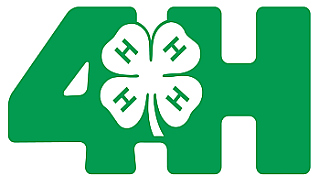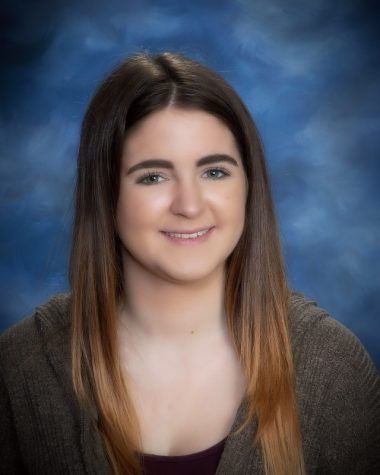Students Should Join 4-H

(Photo Credit via extention.umd,edu)
4-H should be apart of today’s school curriculum in all schools, to help students learn many new things in life.
4-H is a program teaches young kids/ adults about sharing, doing, and learning together in many different kinds of hands on projects, events, and activities. It is open to everybody. It is a non-formal educational youth development program. Held by your local extension office. PA’s is through Penn State Extension. This program reaches up to 7 million youth in all 50 states, and including Puerto Rico. 4-H is the largest youth-serving program in as many as 82 countries. To be in 4-H, you have to be between the ages 8-18 years old.
“4-H is very important to our community. It lets young people get involved in the community,” said Mary Wagner.
A.B Graham started the Youth 4-H Program, according to the 4-H History. He started this in Clark County, Ohio in 1902. This was considered the birth of 4-H in the United States. One of the first clubs was called “The Tomato Club” or the “Corn Growing Club.”The 4-H symbol is a four-leaf clover signifying good luck and much success. Jessie Shambaugh developed the clover pin with the H’s on each leaf in the year 1910. By 1912 they were now being called “The 4‑H clubs.” Each “H” stands for something special: Head, Heart, Hands, and Health.
Members can select the 4-H project that interests them most. Projects include: Rabbit (breeding/marketing), Steer (dairy/market/beef/many more), Swine, Gardening, Wildlife, Cooking, Robotics, Sewing, Dog, Horse, Sheep, Lamb, and shooting sports (archery, air rifle, air pistol, shotgun, and more). There are over 150 projects.
“I would most likely participate in shooting sports and probably archery,” said Michael Ludrosky. “It would be a good hobby and would help me with hunting.”
4-H can help students make new friends, learn things by doing many interesting things. Like serve their community, become a teen leader, enjoy the outdoors, explore your interests. The program focuses on many things. It teaches young people how to work with adults to become useful citizens. Students can have the opportunity to participate in group activities, and events, such as fairs, trips, camping, teen leader training, fundraising, achievement programs, and county, regional, state learning opportunities. There are State Capital days, and State Council. An example is the National 4-H Congress. National 4-H Congress gives the opportunity to hundreds of youth to go to Atlanta Georgia to meet with different people, and talk about 4-H. According to the National 4-H Congress back in the early 1900’s over 100 young men and women met to exchange ideas about 4-H.
“National Congress is apart of our history, so yes I would go,” said Caroline DePhillips. “It seems like a good place to go and meet new people, and to talk to people who are just like yourself. If I had only ever once chance to go I would, it seems very exciting.”
In a poll of ten students, eight students agreed that they would join 4-H if there was a school program.
“I would love to take on these activities after school and even on after a while,” said Madison Kovach. “I would love to help out my community and teach younger kids about our world.”
Any young child or adult is able to join 4-H. Ages 5-7 are considered Cloverbuds. Ages 8-18 are 4-H. Your age is determined by your age as of January 1st of the current year. The cost varies from the different clubs. There are no uniforms required. Members pay an annual fee to help cover educational materials. Greene County Rabbit club is $21 a child. Recently, due to funding issues, fees were increased. The previous cost was $11.
“I think the prices should be lowered back down to $11,” said Erin Johnson. “Higher prices might draw people away from the program, and make them not want to do it anymore.”
There are other things that deal with 4-H. FFA is an off branch of 4-H. It stands for Future Farmers of America. FFA is not just for students to have more farming experience, it is for teachers, doctors, scientist, business owners and many more. FFA helps the next generation to rise up and meet challenges by helping members to develop their own talents. FFA is also helping get future biologists, future chemists, veterinarians, engineers, and more. FFA is funded by sponsorship and individual donations at different levels. Dues for this are $7 per person for that year. What you wear for FFA is called Official Dress. It shows identity and gives a distinctive and recognizable image.
Would you participate in FFA? “No, because I don’t raise animals,” said Brooke Weir. “However, FFA is a great program for many people.”
You as a student have a right to be in a 4-H program. To be able to do more with the 4-H program you have to be willing to do hands on activities. 4-H can help you as a student become stronger, and help you on your communication skills. Doing 4-H has brought millions of young adults together in one room and showed them what is the meaning of many things. 4-H helps you prepare for life after college. It doesn’t mean you have to be a farmer, you can be anything with the help of 4-H. 4-H and the FFA has given many great jobs to young adults because of what they learned from it. It teaches you how to be responsible and how to work together as a team when needed. You don’t have to do just one project you can do as many as you think you can take on. 4-H takes dedication, and willing time to help your community.
You get the opportunity to do fairs and many big shows. You will win many awards for the place that your animal or item is placed. You can win a small ribbon, to a big ribbon to a plaque or even a big trophy. Do what you wish to do in life, but joining 4-H can help your future!

Sydney Kovach is a senior and a first year Journalism student.
Kovach participates in the Greene County Rabbit Club with 4-H, and shows at the Jacktown...


